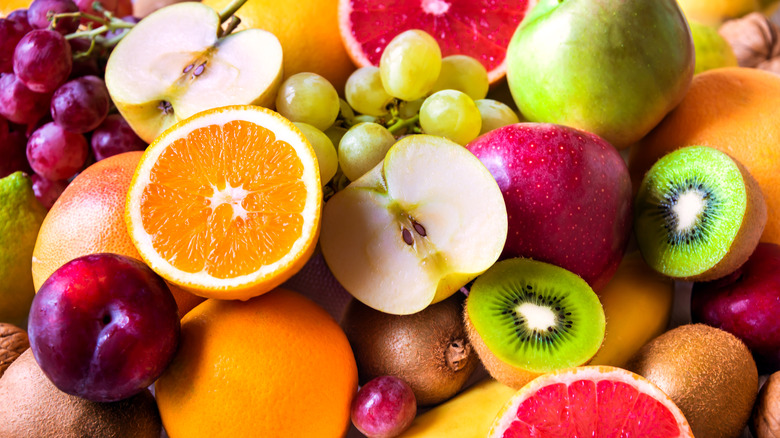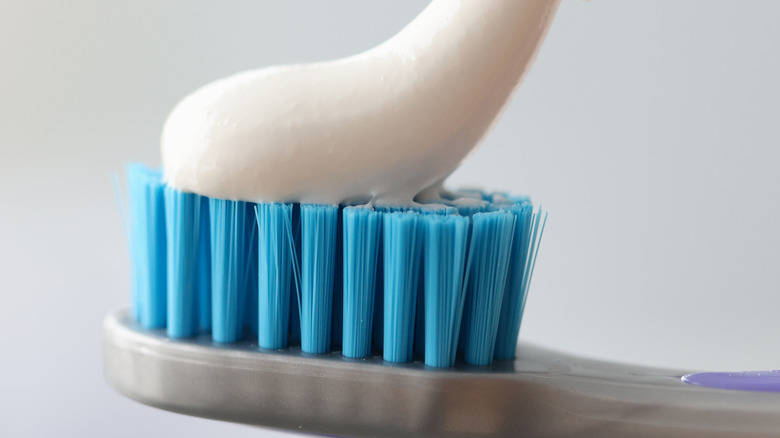How To Protect Your Teeth When Eating Acidic Foods
There are few things more captivating than a brilliant smile. It's no wonder that there's a massive industry surrounding the health, protection, and cosmetic betterment of our teeth. We want them straight, smooth, and movie-star-white! None of that is possible, however, if our enamel isn't intact.
Tooth enamel is the extremely hard and thin outer layer of the crown that protects the tooth from damage. Lucky for us, we are all born with teeth protected by enamel, but there's a catch. Tooth enamel can erode and, unlike skin or hair that regenerates, once enamel is gone, it's gone for good. According to the American Dental Association, tooth erosion is the loss of mineralized tooth substance brought on by exposure to acids that are not produced by oral bacteria. The Oral Health Foundation says that the loss of enamel causes teeth to look yellow, cracked, and jagged, and leaves them sensitive to hot, cold, or acidic food and drinks.
It's of critical importance we protect our grins from big, bad acid. Here's how you can start.
What is acidity and what foods are acidic?
You probably have some level of familiarity with acids and bases, but just as a refresher, an acidic solution has a high concentration of hydrogen ions, whereas a basic solution has a low concentration (per Khan Academy). Acidity is measured by the pH scale, which ranges from 0-14, with 7 being neutral. Anything below 7 is acidic and anything above 7 is alkaline, or basic. On average, the human mouth maintains a pH of 6.7, according to a 2013 study published in the Journal of Indian Society of Periodontology.
Some foods are inherently higher in acidity than others, and this can have an effect on the constitution of your enamel. A few particularly acidic foods include citrus fruits like lemon, lime, and orange, pineapple, grapes, blueberries, apples, and pomegranates. Some dairy products, like yogurt or aged cheeses, as well as soda, powdered drink mixes, tomato juices, and sauces are acidic as well (per Healthline).
How to prevent dental erosion
You don't need to let the fear of dental erosion strong-arm you into giving up fruit salad or lemonade altogether. There are a few easy things you can do that can help prevent the loss of enamel. According to the Oral Health Foundation, it's always better to avoid direct contact between your teeth and citrus fruits, so sucking on lemons or limes is generally a no-go. If you're drinking fruit juice, try to always do so with a straw so the liquid has as little contact with your teeth as possible.
When you do eat or drink something acidic, the best practice is to rinse your mouth out with water after, but wait at least 30 minutes before brushing so your teeth have time to build up their mineral content again. One more piece of advice, as well as a fun fact for trivia night: try eating some cheese after snacking on acidic fruits. It raises the saliva content in your mouth, which helps neutralize acids.



